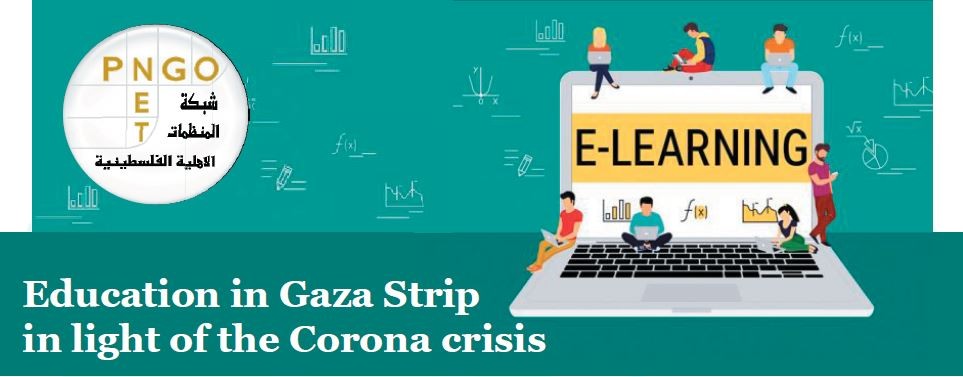The Palestinian Network of NGOs has issued a paper on the Coronavirus pandemic impact on the education sector in the Gaza Strip under the existing successive political, social, and economic crises. This comes in the light of the Strip's unique history of injustice and the fantastic ability to continue to survive and to face all challenges, especially concerning education.
The paper was prepared by Refat Sabbah, Director of the Teacher Creativity Center. It analyzes the role of civil society organizations following the recent crisis and the extent of its involvement in the crisis response process. This came primarily in the absence of justice and equality for the most vulnerable groups in terms of discrimination and exclusion in accessing education.
The paper dealt with the fragile situation in the Gaza Strip, which exposes a high number of victims, including the presence of disabilities and psychological and social cases. The situation also unfolds a high unemployment rate of 43% in 2018 to about 47% in the second quarter of 2019.
The Palestinians, the paper mentioned, were not mentally nor psychologically ready to learn remotely in the education sector. Thus, the figures of the Palestinian Central Bureau of Statistics reveal the impossibility of limiting to this option, as more than a third of Palestinian families have a computer, and 65 percent of them have an access line to the Internet At home, 80 percent of individuals possess necessary technological skills.
Furthermore, the paper stressed the need to strengthen solidarity and unity at the national level to help the education sector overcome its problems and develop tools to activate unity among the civil society organizations within the framework of a social and educational movement. The paper also discusses the need to formulate Palestinian capabilities, civil society organizations, in particular, to respond, promote, and develop social responsibility of the private sector towards education.
The paper concludes with recommendations regarding the necessity of providing teachers with the cognitive knowledge and skills necessary to deal with students in crises. Also, adequate budgets should be provided to conduct the educational process and ensuring that educational policies take into account marginalized regions and groups, especially persons with disabilities. The sector should pay attention to educated women, whether in terms of educational policies, or societal culture, which reduces their capabilities. The COVID-19 pandemic made considering virtual/distance learning a must as well as the use of technology and its integration with face-to-face learning to meet the needs of both teachers and students.
It's noteworthy that the paper was prepared within the project of "Palestinian civil society organizations' directions to face future challenges," which is implemented in partnership with the Friedrich Ebert Foundation.



